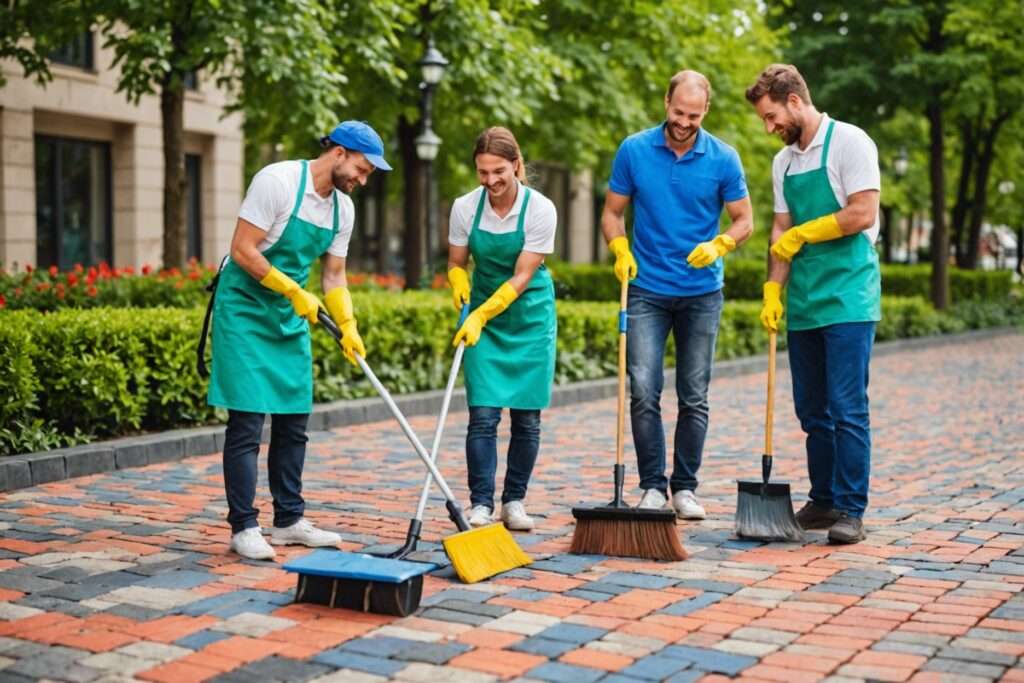
How to Remove Different Types of Stains from Pavers: Oil, Grease, Hard Water, and Rust
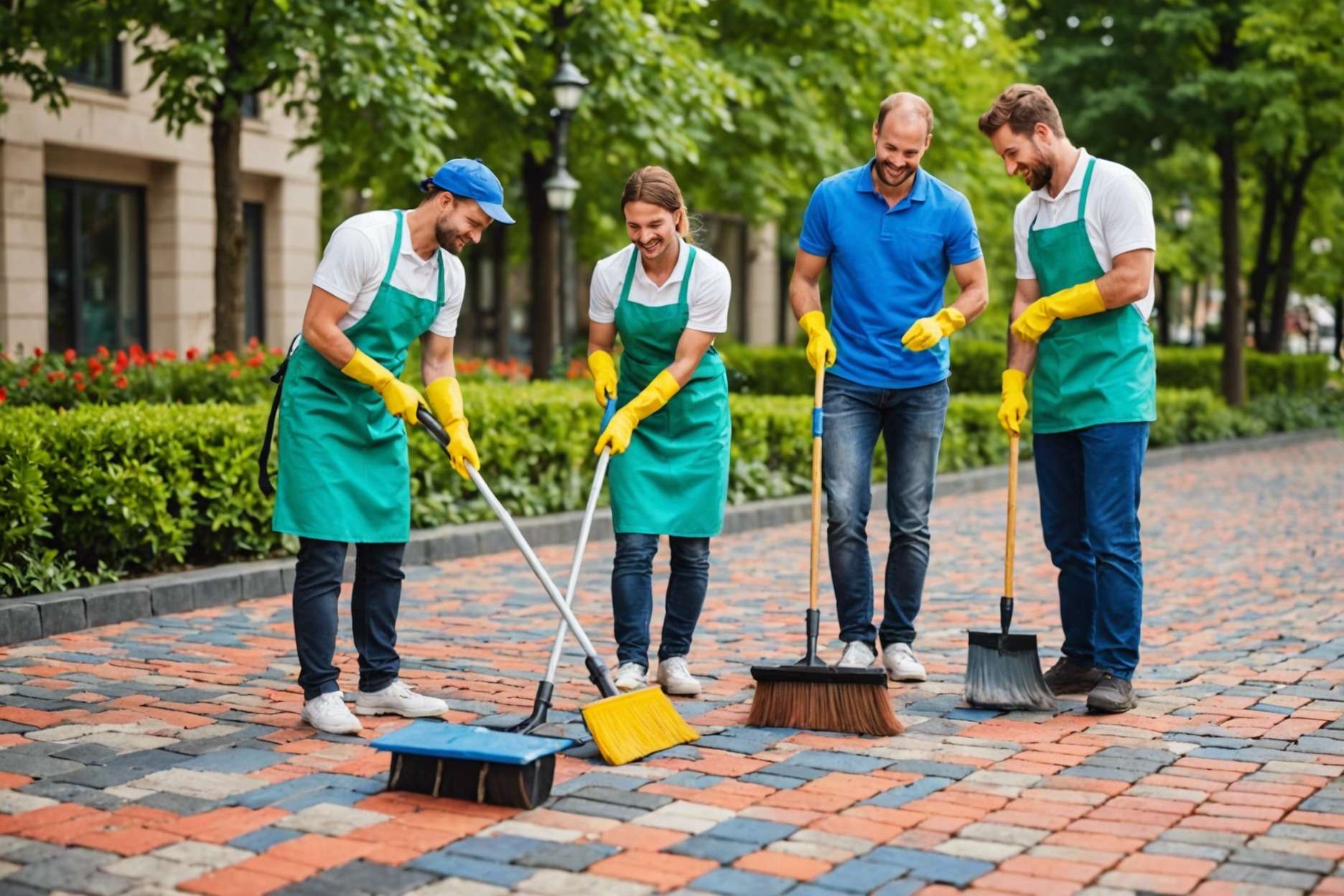
To remove oil and grease stains from pavers, apply a homemade poultice made of flour, hydrogen peroxide, and mineral spirits or use commercial-grade cleaners for more stubborn stains. For hard water and rust, create a paste using white vinegar and baking soda or lemon juice and baking soda, apply to the stain, let it sit, then scrub and rinse off.
1. Introduction to Removing Stains from Pavers
Homeowners often struggle with stains on their pavers, which can ruin the look and durability of their outdoor spaces. Keeping pavers clean not only enhances their appearance but also extends their lifespan. Here’s a guide on tackling one of the most common issues: oil stains.
- Quick Action: Address oil spills immediately to prevent the oil from seeping into the pavers. The sooner you act, the easier the cleanup will be.
- Homemade Solutions: For fresh oil stains, try scrubbing the area with a mixture of detergent and water, then rinse thoroughly.
- Commercial Cleaners: For older or stubborn stains, consider using a commercial-grade cleaner like Surebond Oil Extractor, which is effective on petroleum and food-based oils.
- Natural Remedies: Create a homemade poultice with flour, hydrogen peroxide, and mineral spirits to draw out deep-set oil stains.
- Absorbent Materials: Sprinkle cat litter, corn starch, or meat tenderizer on the stain to absorb the oil before sweeping it away.
- Preventive Measures: During paver installation, consider treatments that prevent oil absorption. Place mats under vehicles to catch drips and check regularly for new spills to clean them promptly.
- Regular Maintenance: Keep pavers clean with routine sweeping or using a leaf blower to remove dirt and debris, which helps prevent stains from setting.
By following these tips and regularly maintaining your pavers, you can keep them looking great and resistant to stains.
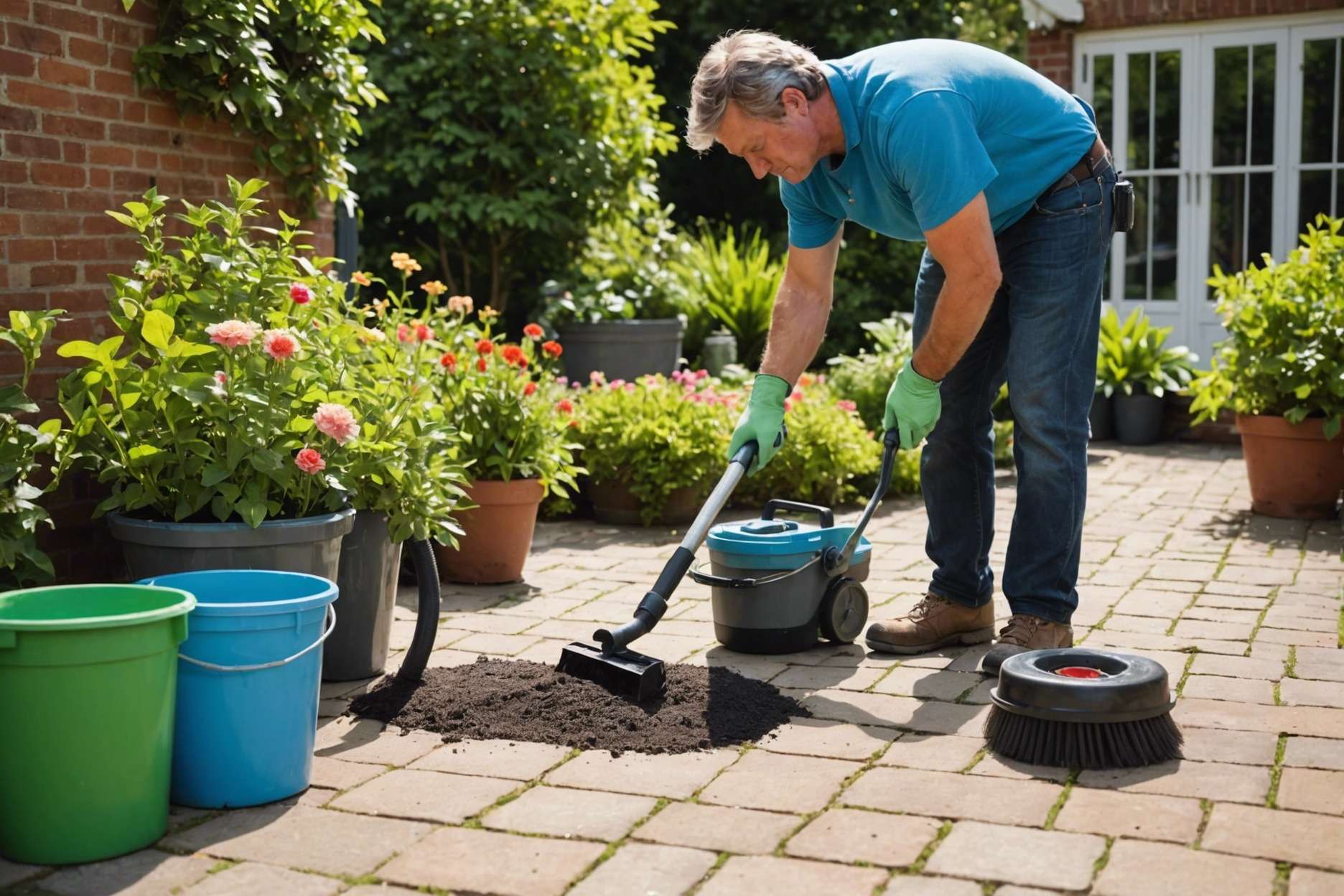
2. Removing Oil Stains from Pavers
- Act Fast on Fresh Spills: Quickly tackle fresh oil spills on pavers by using detergent to scrub the area, followed by a thorough rinse. This prevents the oil from seeping in and setting.
- Homemade Solutions for Set Stains: For oil stains that have dried or are stubborn, create a homemade poultice. Mix flour, hydrogen peroxide, and mineral spirits, and apply it to the stain. This mixture can draw out the oil from deep within the pavers.
- Use Absorbents: Sprinkle cat litter, cornstarch, or meat tenderizer on the oil stain. These materials absorb the oil, making it easier to clean up after sweeping them away.
- Commercial Cleaners: For challenging stains, consider using a commercial-grade cleaner like a poultice-style cleaner. These products are designed to dissolve and lift oil stains from pavers.
- Preventive Measures: During installation, treat pavers to prevent oil penetration. Place mats under vehicles or machinery to catch oil drips before they hit the paver surface.
- Regular Maintenance: Regularly check and clean pavers. Use white vinegar diluted with water or a simple mix of dish soap and water for ongoing maintenance to avoid oil stain buildup. For tough stains, pressure washing may be effective.
3. Eliminating Grease Stains from Pavers
- To tackle fresh grease stains on pavers, start by using a simple detergent scrub followed by a thorough rinse. This method is effective for stains that haven’t set in yet.
- For older or stubborn grease stains, consider using a commercial-grade cleaner. Poultice-style cleaners are especially good, as they use powerful solvents to draw out deep-set stains.
- A natural option for removing grease involves making a homemade poultice. Mix flour, hydrogen peroxide, and mineral spirits to create this natural cleaner.
- Absorbent materials like cat litter, corn starch, or meat tenderizer can also be used to draw out grease from pavers. Simply apply the material, let it absorb the grease, and then sweep it away.
- Prevent grease stains by acting quickly when spills occur. This makes clean-up much easier and prevents the grease from seeping into the pavers.
- Regular maintenance, such as using mats under vehicles, can help protect your pavers from grease stains. Promptly cleaning new spills is also key to maintaining the appearance of your pavers.
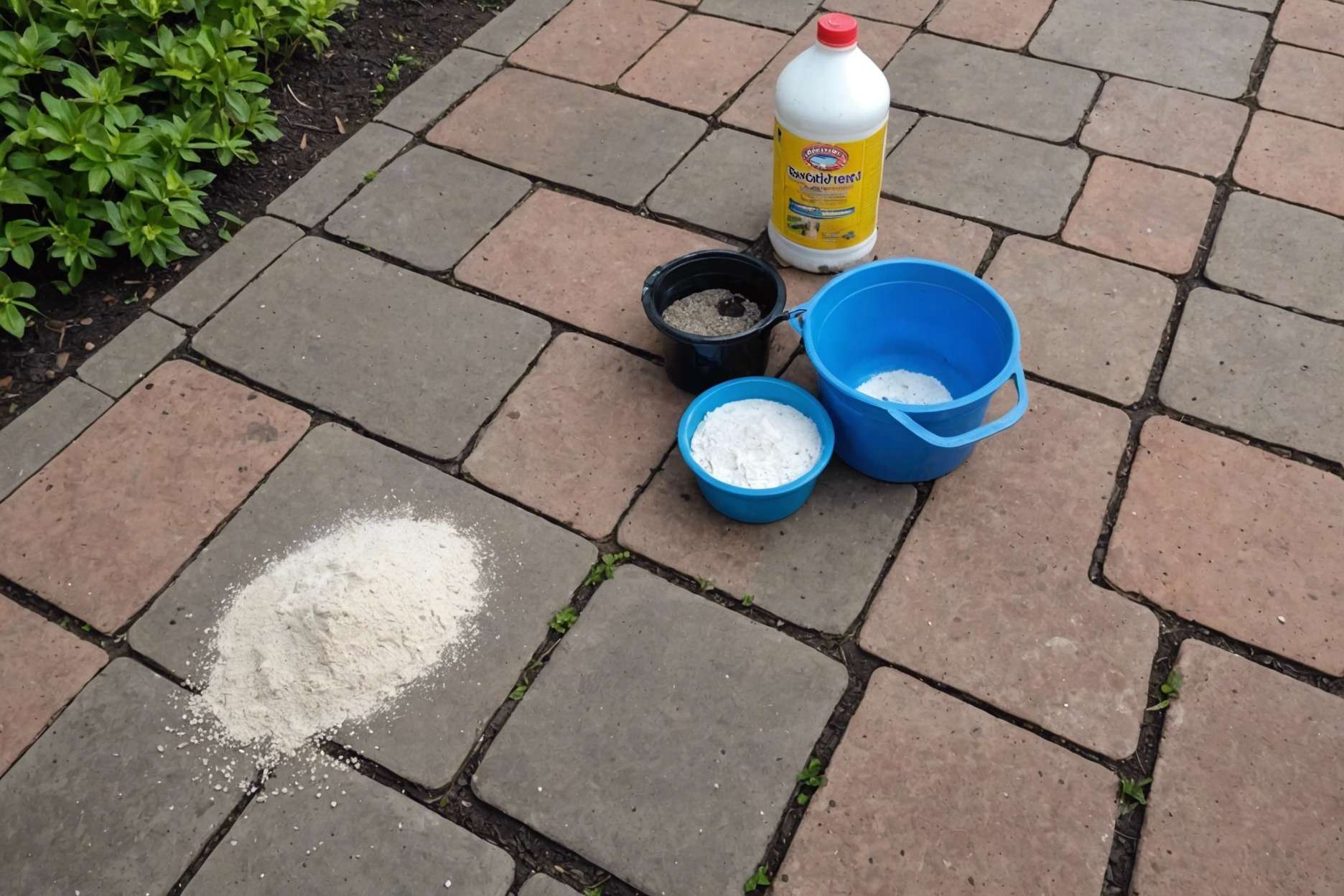
4. Handling Hard Water and Rust Stains on Pavers
Hard water and rust can leave stubborn stains on pavers, but with the right approach, you can effectively clean and prevent these issues. Here’s how you can tackle these stains:
- Natural Solutions:
- Mix white vinegar and baking soda to create a paste. Apply it to the rust stain, let it sit for 30 minutes, scrub, and then rinse.
- Alternatively, use a paste made from lemon juice and baking soda for a similar effect.
- Chemical Treatments:
- For tough stains, commercial rust removers are effective. Follow the manufacturer’s instructions carefully.
- Oxalic acid can be used for deeply embedded rust stains, but handle with care due to its corrosive nature.
Preventive Measures:
- Ensure proper drainage to avoid water accumulation, which can lead to rust.
- Cover metal furniture or decorations to prevent rust transfer to pavers.
Regular maintenance and quick action on stains can keep your pavers looking great. For severe cases, replacing the affected pavers might be necessary. For professional assistance with paver installation or maintenance, consider our outdoor living services.
For more detailed information on different paver installing techniques, read our comprehensive blog post on the top 3 brick paving patterns for driveways.
To explore further restoration advice for historic homes, you might find our guide on Pasadena’s historic homes paver restoration particularly useful.
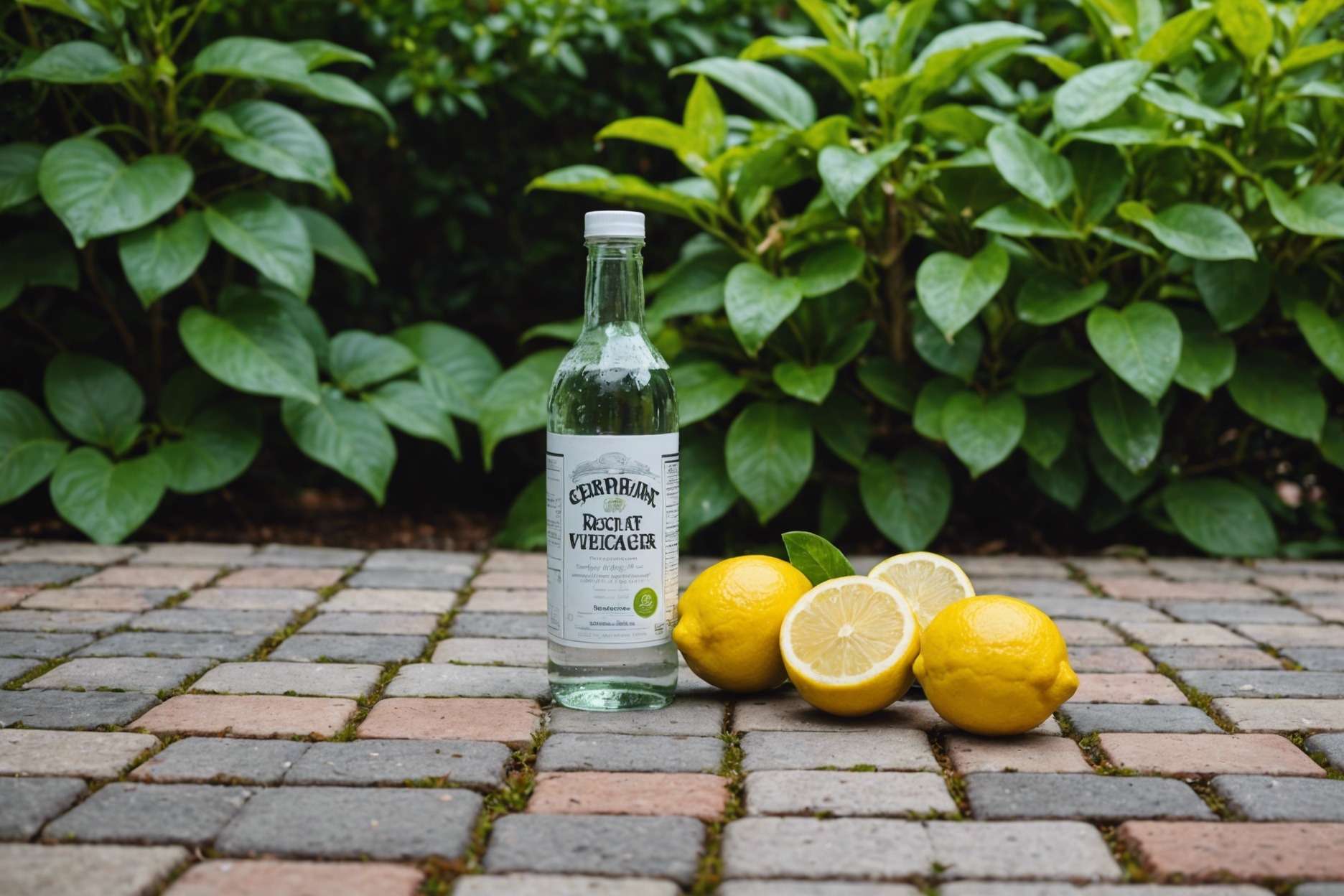
FAQ
What should be done immediately after an oil spill on pavers?
Quick action is essential. Address oil spills immediately by scrubbing the area with detergent and water, then rinse thoroughly to prevent the oil from seeping into the pavers.
What are some effective homemade solutions for removing fresh oil stains from pavers?
For fresh oil stains, scrubbing the stained area with a mixture of detergent and water is recommended. For dried or stubborn stains, a homemade poultice made of flour, hydrogen peroxide, and mineral spirits can be applied to draw out the oil.
Can commercial cleaners be used for oil and grease stains on pavers? If so, which type is recommended?
Yes, commercial-grade cleaners like Surebond Oil Extractor for oil stains and poultice-style cleaners for grease stains are effective. These products are designed to dissolve and lift oil and grease stains from pavers.
How can grease stains be handled if they are fresh versus set-in?
For fresh grease stains, use a simple detergent scrub followed by a thorough rinse. For older or more stubborn grease stains, a commercial-grade cleaner or a homemade poultice of flour, hydrogen peroxide, and mineral spirits should be used.
What natural remedies can be used to remove rust and hard water stains from pavers?
White vinegar mixed with baking soda or lemon juice with baking soda can create an effective paste for treating rust stains. This paste should be applied, allowed to sit, and then scrubbed and rinsed off.
What preventative measures can be taken to protect pavers from stains?
During installation, treat pavers to prevent oil or grease penetration. Placing mats under vehicles or machinery helps catch drips before they stain the pavers. Ensuring proper drainage can prevent hard water accumulation and subsequent staining.
What regular maintenance practices should be followed to prevent stain buildup on pavers?
Regular sweeping or using a leaf blower to remove dirt and debris is crucial. Additionally, routinely checking for spills and cleaning them promptly helps maintain the pavers’ appearance. For ongoing maintenance, using diluted white vinegar or a mix of dish soap and water can be effective, and for tough stains, pressure washing may be necessary.
Are there any tips for handling deeply embedded rust stains specifically?
For deeply embedded rust stains, oxalic acid can be used due to its effectiveness on tough stains. However, it should be handled with care due to its corrosive nature, and always follow the manufacturer’s instructions when using chemical treatments.
